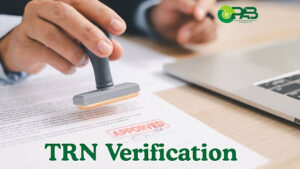Ready to master how to calculate corporate tax in UAE and keep your business thriving? This complete guide breaks down every step in simple terms, so you can tackle your tax return with confidence.
You’ll learn why tax planning matters, what documents to gather, and exactly how to do the math. We’ll even share pro tips to save time and avoid common mistakes.
Read on to discover how easy it is to stay compliant and budget smart for your company’s future.
What Is Corporate Tax in the UAE?
Corporate tax is a fee the government charges on a company’s profits. Starting June 1, 2023, most UAE businesses pay 9% on taxable profits above AED 375,000. Profits under that threshold enjoy a 0% rate. This system helps small businesses grow while ensuring larger firms contribute fairly.
Why You Need to Know How to Calculate Corporate Tax in UAE
Understanding your tax bill ahead of time keeps your budget on track. By knowing exactly what you owe, you can avoid penalties, set aside cash, and make smarter business decisions all year long.
- ✅ Avoid Penalties: Filing the wrong amount or missing a deadline can incur fines.
- ✅ Budget Wisely: Knowing your tax bill ahead of time helps you set aside cash.
- ✅ Plan Growth: Understanding taxable income guides decisions like hiring or investing.
Key Terms to Master Before You Calculate
It’s easier to calculate tax when you speak the language. Learn these key terms before you start crunching numbers:
- ✅ Taxable Income: Net profit after adding back any non‑deductible costs and subtracting allowable deductions.
- ✅ Allowable Deductions: Business expenses you subtract (e.g., salaries, rent, utilities).
- ✅ FTA Portal: The Federal Tax Authority’s EmaraTax online system where you file returns.
- ✅ Free Zone vs. Mainland: Different regimes apply; free‑zone entities may qualify for 0% on qualifying income.
Step‑by‑Step: How to Calculate Corporate Tax in UAE

Follow these five simple steps to turn your profit figures into an exact tax amount. From gathering statements to applying the 9% rate, you’ll see exactly what to do.
✅ Step 1: Gather Your Financial Statements
Collect all relevant documents so you have a clear picture of revenues and costs:
- Profit & Loss Statement: Shows revenues and expenses.
- Balance Sheet: Reflects assets and liabilities.
- Adjustments: Any prior‑year corrections or disallowed expenses.
✅ Step 2: Determine Your Taxable Income
Work out the amount on which tax will be charged:
- Start with Net Profit: From your profit & loss.
- Add Back Non‑Deductible Costs: For example, fines or entertainment expenses.
- Subtract Allowable Deductions: Business expenses like wages, rent, utilities.
✅ Step 3: Apply the UAE Corporate Tax Rate
The first AED 375,000 of taxable income is tax‑free; anything above is taxed at 9%.
- 0% Rate: Up to AED 375,000 of taxable income.
- 9% Rate: On any taxable income above AED 375,000.
Formula:
Tax Payable = (Taxable Income – 375,000) × 9%
(If Taxable Income ≤ 375,000, Tax Payable = 0.)
✅ Step 4: Include Special Allowances & Reliefs
Account for all official incentives and credits to reduce your final tax bill:
- Charitable Contributions
Only donations to FTA‑approved Qualifying Public Benefit Entities (QPBE) are deductible. - R&D Credit (from 2026)
An expenditure‑based refundable tax credit (30–50%) for qualifying research projects, per OECD guidelines. - Qualifying Group Relief
No‑gain/no‑loss treatment on asset or liability transfers within an FTA‑approved group. - Foreign Tax Credit
Offset UAE corporate tax by foreign taxes actually paid on the same income. - Small Business Relief
0% rate for businesses with annual turnover under AED 3 million (expires December 2026). - Domestic Minimum Top‑Up Tax
A 15% top‑up tax on certain large multinational enterprises, effective January 1, 2025, under OECD Pillar 2.
Worked Example: Calculating Corporate Tax in UAE
Seeing numbers in action makes it click. Imagine a Café made a net profit of AED 500,000 this year:
- Net Profit: AED 500,000
- Taxable Income: AED 500,000 (no non‑deductibles)
- Threshold: AED 375,000 at 0%
- Excess: AED 500,000 – 375,000 = AED 125,000
- Tax Payable: AED 125,000 × 9% = AED 11,250
The Café owes AED 11,250 in corporate tax.
Common Pitfalls When You Calculate Corporate Tax in UAE

A few small mistakes can lead to penalties. Watch out for:
- ✅ Forgetting Non‑Deductible Costs: Fines or personal expenses slip into your profit figure.
- ✅ Overlooking Free‑Zone Exemptions: Some free‑zone entities pay 0% on qualifying income if export rules are met.
- ✅ Missing Deadlines: Late filings incur penalties, mark your calendar!
Exemptions & Special Cases in UAE Corporate Tax
Not all businesses are taxed the same way. Discover how different entities qualify for special rates:
✅ Free Zone Entities
May enjoy 0% on qualifying income if they export at least 50% of revenue outside the UAE; non‑qualifying income is taxed at 9%.
✅ Small Businesses
The first AED 375,000 of profit is always taxed at 0% to support startups and SMEs.
✅ Oil, Gas & Foreign Branches
Separate agreements apply, often with different rates or calculation methods.
📌 Also read: Low Cost Business Setup in Dubai UAE
Filing Your Corporate Tax Return in the UAE
Once you’ve done the math, file via the FTA portal without a hitch.
How to Submit Your Calculation via the FTA Portal
- ✅ Register your company on the FTA’s EmaraTax portal.
- ✅ Enter your taxable income, deductions, and credits.
- ✅ Upload required documents (e.g., audited financial statements).
- ✅ Submit by the deadline: typically 9 months after your financial year end.
Deadlines, Extensions & Penalties
- ✅ Late Filing: Fines start from AED 500.
- ✅ Extensions: Apply online before the due date to avoid penalties.
Using a UAE Corporate Tax Calculator
Want a quick sanity check? Online calculators let you:
- Plug in your profit and deductions.
- Automatically see your tax bill.
- Spot errors early before you file.
Pro Tips to Simplify Your UAE Corporate Tax Calculation

Small habits pay off big:
- ✅ Keep Neat Records: Track expenses in real time, not just at year‑end.
- ✅ Automate with Spreadsheets: Build a simple template for quarterly checks.
- ✅ Review Regularly: Spot trends and adjust budgets before tax season.
📌 Also read: Smart Business Finance Tips and Strategies
Next Steps: Staying Updated on UAE Tax Rules
Tax laws evolve and you want to stay on top:
- ✅ Follow FTA Announcements: Changes to reliefs and incentives can happen.
- ✅ Subscribe to Newsletters: Get alerts on tax law changes and planning tips.
📌 Also read: Effective Marketing Management
Conclusion
You’ve now got a clear, friendly roadmap for how to calculate corporate tax in UAE, from gathering your statements to filing on the FTA portal.
To spark new ideas for your venture, check out our Top 20 Small Business Ideas in UAE.
And when you’re ready for expert support, partner with Outsource Prime Accountants and Bookkeepers (OPAB) in Dubai for expertise and guidance.
We’re always ready to help, reach out to the pros at OPAB anytime! Contact us!
Frequently Asked Questions About Calculating Corporate Tax in UAE
How much is corporate tax in UAE salary?
Corporate tax in the UAE isn’t based on salary, it’s charged on company profits, not individual pay. Employees don’t pay corporate tax, they may have personal tax obligations in their home countries. Companies calculate tax on net profits above AED 375,000 at 9%.
How to do corporate tax in the UAE?
Gather your financial statements, figure out your taxable income, apply the 9% rate on amounts over AED 375,000, include any credits or reliefs, and file via the FTA portal. It’s as simple as “profit, multiply, file.”
Is corporate tax calculated on net profit?
Yes, corporate tax is calculated on net profit after allowable deductions. You start with the profit shown in your income statement, adjust for non‑deductibles, then apply the rate. The first AED 375,000 is tax‑free, anything above is taxed at 9%.
How to calculate corporate revenue?
Corporate revenue is the total income a company earns before expenses. Add up all sales, services, and other income streams for the period. Remember you pay tax on profit, not on gross revenue.
What is qualifying income in UAE corporate tax?
Qualifying income refers to profits eligible for corporate tax calculation. It’s your net profit after adjustments, subtracting non‑deductible costs and adding back disallowed expenses. In free zones, only income meeting certain export or activity criteria may qualify for 0% rate.









